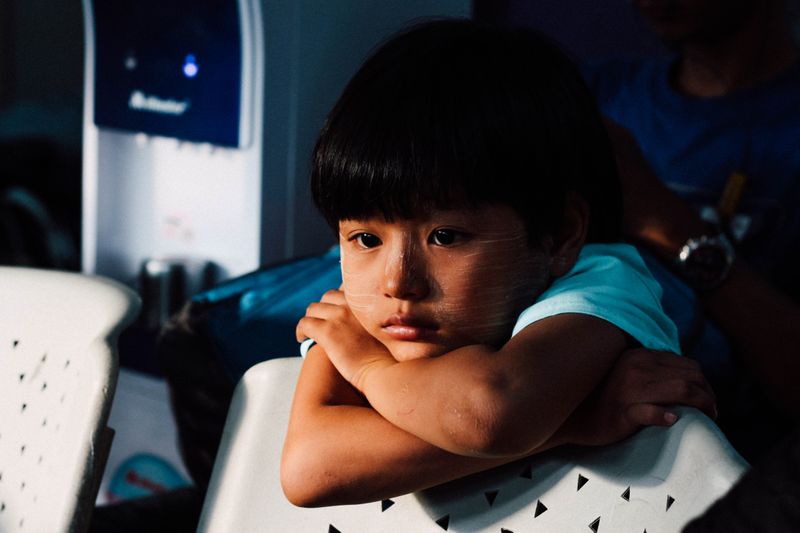What is parental favouritism?
Parental favouritism is when one child is treated differently from others. This may include punishing them less, praising more, or spending more quality time together.
This can make children feel anxious, pressured, or insecure.
Fortunately, we can take steps to avoid parental favouritism and make sure all children feel secure, seen, and loved.
 Photo by Kelly Sikkema on Unsplash
Photo by Kelly Sikkema on UnsplashWhat Are The Causes?
Your oldest daughter Ankita is a star student and helps to take care of her siblings. She's just so easy to love!
Vin, your youngest son, is so playful and goofy! He reminds you of what you were like as a child.

Parents don't try to favour a child on purpose. But they may have an easier time connecting with one child than others, leading to favouritism.
Common trends may include favouring a child who is:
The first born, or the youngest
Easy to get along with
An achiever, and has accomplishments the parents take pride in
Naturally talented
Similar to the parent
Impacts On The Favourite Child
The child who is favoured may:
Feel pressure to perform or please - both for parents and others
Develop a superiority complex - thinking they are more important than others
Experience fear of failure or letting others down
Always seek the parents' support - E.g., "I can't do this without my mom"
Not be motivated to build friendships outside the parent relationship

Consider This
Natalya has two children, Amir and Ben. When Ben doesn't complete his homework, Natalya doesn't let him see friends for a week. Later, when Amir misses a homework assignment, she asks him if anything is wrong and tells him she's concerned about him.
Quiz
How do you think Amir might feel in this scenario?
Impacts On Other Kids
Children who are not the favourite may:
Develop lower motivation, self esteem, or self worth
Feel a sense of jealousy toward the favourite child
Seek validation outside of the home
Have difficulty making decisions
Looking for supportive relationships with other adults
Feel resent their parents
 Photo by Chinh Le Duc on Unsplash
Photo by Chinh Le Duc on UnsplashConsider This
As a child, Abby was a talented dancer and always wished that her kids would become dancers. Her son, Mo, is not interested in dancing but is very passionate and talented at rugby. Abby is less interested in rugby, so she never asks about it, or goes to Mo's games.
Quiz
How do you think Mo might feel in this scenario?
What Does Favouritism Look Like?
Have you seen favouritism in your own family? Or when you were growing up?
Here are a few examples of what favouritism might look like in practice:
Buying gifts for only one child
Frequently telling others how special the child is
Having different rules for different children (like different discipline approaches)
Ignoring a child who is struggling in some area of their life (bullying, school)
Spending more time with one child
 Photo by Sai De Silva on Unsplash
Photo by Sai De Silva on UnsplashFavouritism In Action
Daria has three children. When she comes home from work, she asks her oldest child about their homework and how their day went. When the second and third child come, she says she is tired and needs to go rest, and that she'll speak to them tomorrow.

Take a few minutes to consider:
How do you think the second and third child might feel?
What might the impacts be if this is part of a pattern in the family?
What could Daria do differently?
Take Action
What is one step you can take to move towards more equal treatment of your children?
Try:
Spending equal one on one time with all your kids
Using the same punishment style for all children
Reward your kids in the same way
 Photo by Benjamin Manley on Unsplash
Photo by Benjamin Manley on UnsplashYour feedback matters to us.
This Byte helped me better understand the topic.
.png?alt=media)